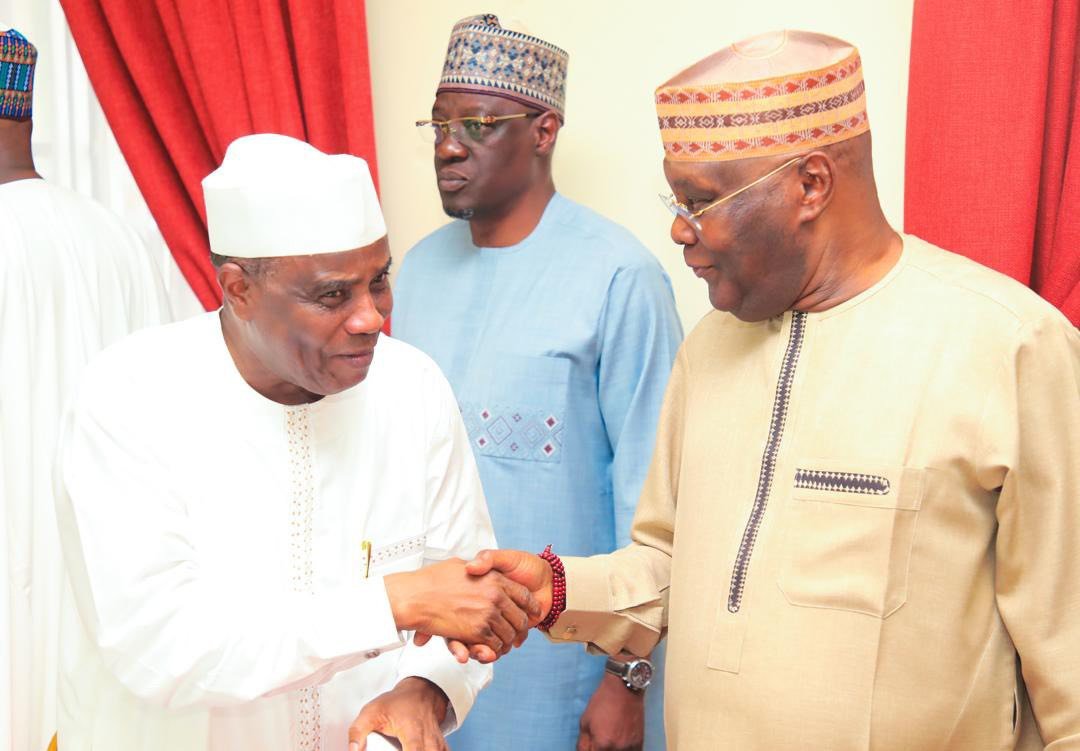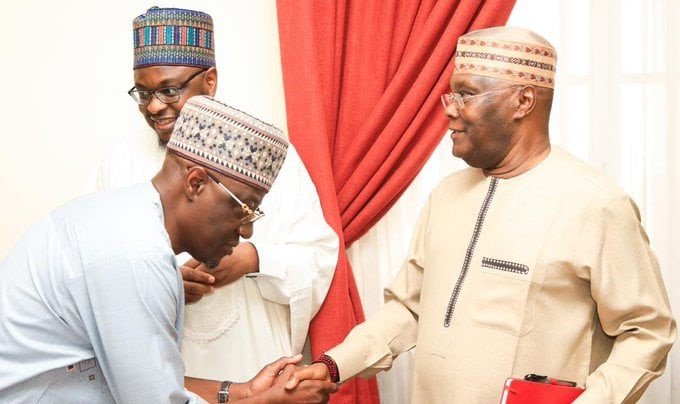THE long-awaited opposition coalition seeking to challenge President Bola Ahmed Tinubu and the ruling All Progressives Congress (APC) in the 2027 general elections has formally adopted the African Democratic Congress (ADC) as its political platform, discarding earlier plans to register a new party under the name All Democratic Alliance (ADA).
News Point Nigeria reports that this decision was sealed at a high-profile stakeholders meeting held on Thursday in Abuja, attended by some of Nigeria’s most influential political heavyweights across party lines.
Former Vice President Atiku Abubakar led the delegation of top opposition figures, joined by Former Kaduna State Governor, Nasir El-Rufai; Former Minister of Digital Economy, Isa Pantami; Former Senate President and ADC National Chairman, David Mark; Former Kwara State Governor, Abdulfatai Ahmed; Former Sokoto State Governor, Aminu Tambuwal; Former Rivers State Governor, Rotimi Amaechi; Former Minister of Interior, Rauf Aregbesola; Former APC National Chairman, John Odigie-Oyegun; Former PDP National Chairman, Uche Secondus; 2023 Labour Party presidential candidate, Peter Obi; Former Speaker of the House of Representatives, Emeka Ihedioha and Former Kogi Central Senator, Dino Melaye
The high-calibre attendance underscored the coalition’s determination to forge a credible third force to wrest power from APC dominance and provide an alternative to what they describe as Nigeria’s entrenched oligarchic political structure.
Writing on his official X handle, Atiku framed the meeting as a citizens’ movement against entrenched interests: “I am currently at the stakeholders meeting of the Coalition African Democratic Congress (ADC) in Abuja. It’s a meeting of the Nigerian people against the oligarchs who promote poverty and insecurity in the land.”
The former vice president insisted that the coalition was a resistance platform designed to challenge systemic poverty, insecurity, and elite capture of Nigeria’s political economy.
Addressing reporters after the meeting, Coalition National Publicity Secretary Bolaji Abdullahi confirmed that the group had abandoned plans to register ADA.
“The Coalition has rested everything concerning the ADA. That means they are not interested in the registration or otherwise of the association,” Abdullahi declared.
Instead, the ADC was unanimously adopted as the mega-platform to field candidates at all levels in 2027.
The ADC leadership went further, directing its high-profile members still officially tied to other political parties including Peter Obi (Labour Party), Nasir El-Rufai (SDP), and Aminu Tambuwal (PDP) to resign their memberships and fully commit to the ADC platform.
National Chairman David Mark and National Secretary Rauf Aregbesola assured that the party was prepared to accommodate the influx of big-name defectors and reposition itself as a national opposition platform.
In a show of unity rarely seen among Nigeria’s fragmented opposition, Abdullahi announced that all presidential aspirants within the coalition had agreed to abide by the outcome of ADC primaries.
“All the presidential aspirants have agreed to support whoever wins the primaries election,” Abdullahi confirmed, calling it a milestone in opposition politics.
The ADC also revealed plans to announce dates for governorship primaries in Osun and Ekiti States ahead of the 2026 off-cycle elections, which will serve as an early test of the coalition’s strength.
Founded in 2005 as the Alliance for Democratic Change before rebranding as ADC in 2011, the party has long sought to position itself as a centrist alternative to the PDP and APC.
While it has never won national power, the ADC has consistently attracted reform-minded politicians and defectors. Its adoption as the coalition’s platform marks the biggest opposition realignment in Nigeria since the 2013 merger that birthed the APC.








